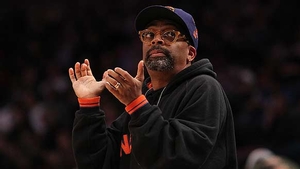Spike Lee talk is rescheduled
by Daniel O'Kelly '14
ARTS & ENTERTAINMENT CONTRIBUTOR
 From the streets of Bedford-Stuyvesant to the recent travails of post-Katrina New Orleans, Spike Lee has been a vital, racially conscious voice in recent cinema. Postponed last Monday, Spike Lee’s lecture has been rescheduled to Wednesday, April 13 at 8:30 p.m. in Wellin Hall.
From the streets of Bedford-Stuyvesant to the recent travails of post-Katrina New Orleans, Spike Lee has been a vital, racially conscious voice in recent cinema. Postponed last Monday, Spike Lee’s lecture has been rescheduled to Wednesday, April 13 at 8:30 p.m. in Wellin Hall.
The lecture, part of the C. Christine Voices of Color lecture series, honors Christine Johnson, a former Director of the Higher Education Opportunity Program. She was firmly dedicated to the Hamilton community and the school’s students of color. This lecture hosts distinguished public figures of color and creates a platform on which they can discuss what it’s like to be a person of in their respective professional fields. In 2001, intellect Dr. Darlene Clark Hines celebrated W.E.B. Du Bois’ “Souls of Black Folk” one hundred years after it was published; in 2007, MTV’s Suchin Pak discussed what it was like to be an Asian-American women in the entertainment industry; the following year, the former Sudanese child soldier, Emmanuel Jal, shared the story of his childhood and the sense of hope he found through the power of religion and music. Spike Lee will seek to join this list of esteemed speakers as he shares his own story.
Spike Lee has revolutionized black artistry in Hollywood. As an actor, producer, writer and director, he has dealt with important issues concerning race relations, the role of media in modern society, poverty and gender identity. An important figure in using film to help spread the images of Hurricane Katrina’s effect on New Orleans, he remains committed to highlighting the importance of combating global change.
Even when he attended New York University, Lee was already gaining recognition for his shrewd and pertinent films. She’s Gotta Have It examines crime in urban areas and Malcolm X traces the life of the African-American activist. His documentaries include 4 Little Girls, the story of the 16 Street Baptist Church bombings in Birmingham, Alabama and Kobe Doin’ Work, in which Lee analyzes one of the NBA’s most valuable players and expresses his own love of basketball.
Given his eclectic interests, one is likely to find Mr. Lee talking to high school students in New York City or Chicago, debating the importance of Afrocentricity in film or actively engaging on the front lines at a New York Knicks game. Next Wednesday, April 13, Lee will talk about his own life, how he became such an esteemed figure, the importance of media today and where he thinks the film industry will go next. Following his presentation, students and faculty will participate in a question and answer session.
